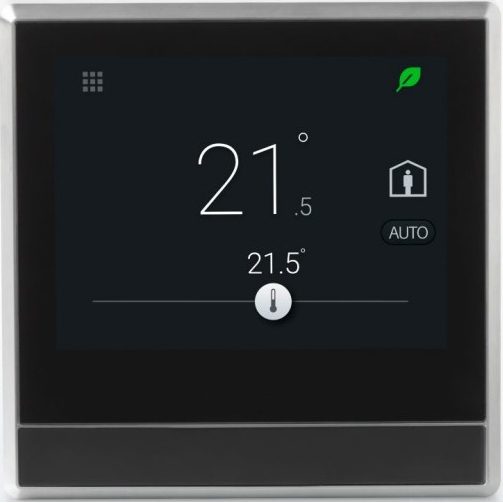Is your air conditioner not cooling your room even after you have set temperature? If so, you’re probably frustrated and ready to call in a professional. Before you do so, here are some quick DIY (Do-It-Yourself) troubleshooting steps that might save your savings.
Before you do, though, we have some quick troubleshooting tips you can try. If your AC isn’t cooling your home, check to see if:
- Have you switched on the thermostat (in case of central air conditioner unit)
- Is your air filter dirty?
- Is your outside unit is clean?
- Your circuit breaker is not tripped.
The above steps are fundamental that you can do. However, if your AC still isn’t cooling down the house, you probably have a larger problem that requires a professional. Let’s discuss each step and see how can fix them.
Check if your thermostat is switched on and working

If you have a central air cooling system, the problem of not cooling may not be big. Sometimes people forget to look at small things like your AC settings in the thermostat. When you first witness your AC is not cooling, then you need to first check the AC and fan settings in your thermostat.
Make sure that fan is not set to blow air constantly, as the warm air will be circulated inside your home, making it difficult for your air conditioner to cool. There are AC where you can program the AC setting as per your preferences or have the auto setting option to do it.
If your thermostat switch is set to ON, that means the blower will run constantly—even when your system isn’t cooling your home, which will result in warm air blowing from your vents.
If your thermostat is Switched on, set it to “Auto” mode. This helps the air to blow from your air conditioner vents.
Ensure your air filter is clean
A dirty air filter in your air conditioner will reduces airflow in the cooling system. This will result the system to struggle to cool your home.
You need to ensure you clean the air filter every month so that your air conditioner can breathe properly. If you ever forget to clean the air filters of your AC, then the cooling system of AC will be affected.
Check if your outdoor unit is clean
If your condenser (the outdoor unit that expels heat from your home) is dirty or covered in debris, it can’t properly get rid of the heat. These important and hidden coils absorb the heat from the air in your home and help cool it, but they can get dirty. If dirt and grime has built up on the coils, they cannot function properly and may need a good cleaning.
How to fix it: Remove any debris and try gently cleaning the condenser fins with a garden hose. Don’t use a strong stream or you’ll damage the fragile condenser fins that allow airflow to cool the refrigerant.
Your circuit breaker is tripped
Many air conditioners these days have 2 circuit breakers: one for the outside unit while the other one is for the inside unit. If the outside unit’s breaker has tripped, the indoor unit will keep blowing plain air into your home, i.e. it will just be warm.
How to fix it: Check your breaker box to see if the outdoor unit’s breaker has tripped. If it has, a switch, get this turned on. If it trips again, do not reset it. This means there’s a bigger electrical problem that a professional will need to fix.
Extended Warranty For Air Conditioner
Simple, Easy, and Online
Refrigerant leakage
Refrigerant is the liquid/gas responsible for absorbing heat from your home’s air. If your AC system is low on refrigerant, it won’t cool your home as well as it normally would.
Here’s the thing: Refrigerant runs in a closed loop through your system. So, if your system is low on refrigerant, it means you have a leak.
Leaking ducts or Improper Installation
If your air conditioner was improperly installed from the start, you may have leaky air ducts. This means your AC could be effectively cooling your crawl space – a space you never intended to cool – but not the rest of your home. That will increase energy costs, invite more dust and prevent cooling. If you have leaks in your ductwork, the hot, unconditioned air of your attic can seep into your ducts, increasing the temperature of the air that is pushed out from your AC vents.
Unfortunately, duct leaks can be hard to detect since ducts are hidden up in your attic. Signs you have leaky ducts include:
- Higher-than-normal energy bills
- You have rooms that don’t cool well
- Your home is unusually dusty (from the dust in your attic)
If you have leaky ducts, you’ll need to contact a professional to seal your ducts with mastic sealant or metal tape.
Bad compressor
he compressor circulates the refrigerant between the inside and the outside units to effectively cool your home. It may fail when dirt or mineral deposits build-up on coils when suction lines get blocked or are the wrong size when refrigerant and oil lubricant levels are incorrect, or electrical burnout.
The compressor is the core of your AC system. It circulates the refrigerant that removes heat from your home’s air and dumps it outside. If your compressor isn’t pumping refrigerant like it should, your air conditioner won’t cool your home well. If there’s a problem with the compressor, you’ll most likely need to replace it (vs just repair it). Compressors are “hermetically sealed”, which means you can’t open them up to repair a single component.
An old system
Generally, an air conditioner wears out around that time depending on the brand. Older units tend to need more upkeep and maintenance and when they stop cooling it can be any one of a number of things wrong with older units. When an air conditioner reaches the end of its operating life it will not be able to cool your home like it used to. This is just a natural fact of an air conditioner’s lifespan, which is why it’s important to replace your system when it is no longer able to perform effectively.
Keep Your Air Conditioner Running Strong With Annual Tune-Ups
The best way to avoid most of the problems above is to schedule an annual tune-up with Hyde’s. During your tune-up, we’ll inspect your system for problems that would impair its performance and perform a full system cleaning! Not only will this help prevent cooling issues during the summer, but will also keep your system running efficiently and extend its operating life.


There is noticeably a bundle to know about this. I assume you made certain nice points in features also.